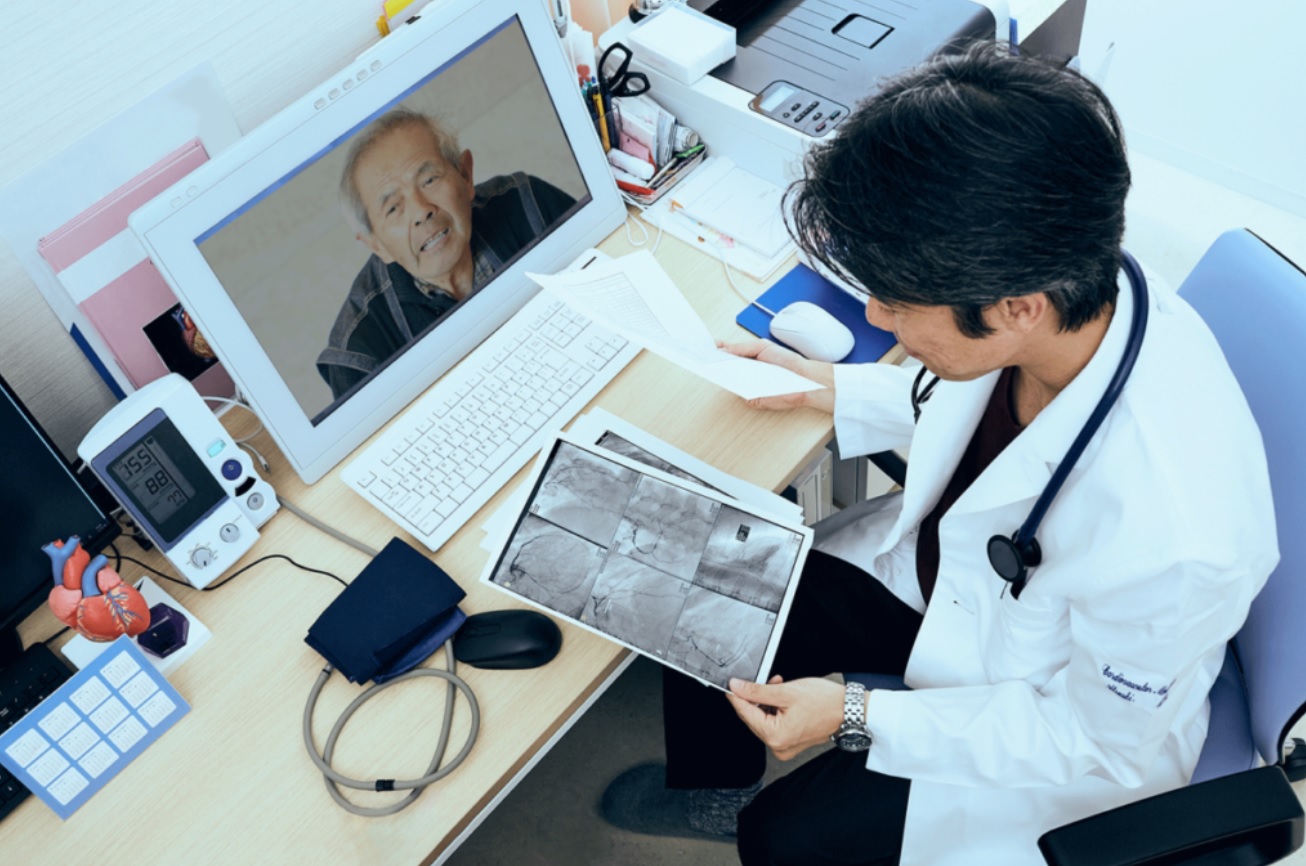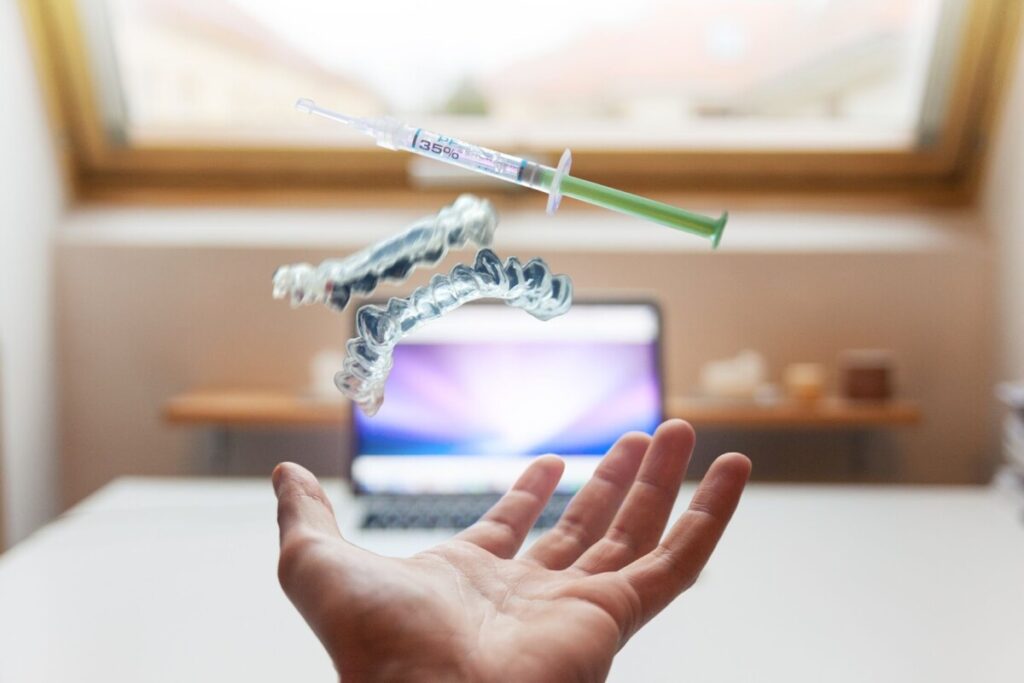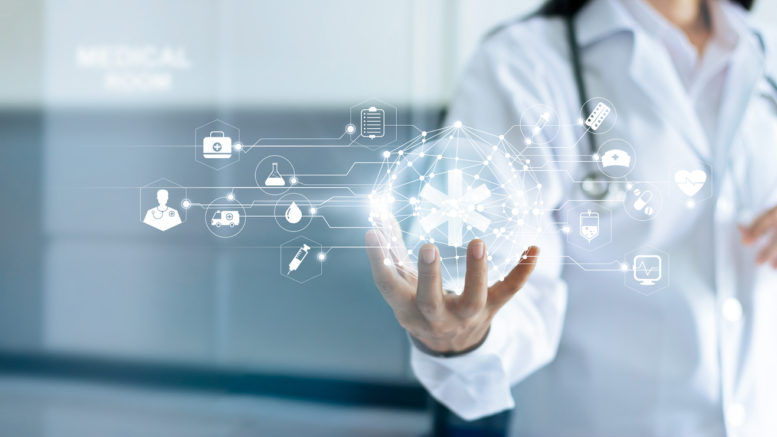Artificial Intelligence (AI) and robots can diagnose and treat diseases and help people stay healthy without having to see doctors face-to-face very often. Read this article to get to know exactly how medical professionals and their clients are benefiting from AI.
Generative AI has already begun to revolutionize the healthcare industry, but the biggest achievements are yet to come. AI-powered solutions automate simple repetitive tasks and allow human experts to focus on more high-priority issues. They improve the quality of healthcare services and increase patient satisfaction. From this article, you’ll get to know exactly how medical professionals and their clients benefit from AI and machine learning.
Staying Healthy
AI and the Internet of Medical Things encourage the proactive management of a healthy lifestyle. That means people themselves get better control of their well-being. They install health apps to assess their sleep quality, performance during training sessions, hydration levels, and other parameters. Healthcare professionals rely on the same apps to achieve the following goals:
- Understanding the lifestyle patterns and individual needs of their clients
- Gathering feedback
- Providing remote consultations
Thanks to technological progress, people don’t need to see the doctor face-to-face to keep well.
Early Detection
AI is indispensable for detecting life-threatening diseases at an early stage, including cancer. For instance, without AI, 50% of healthy ladies might get the wrong interpretation of a mammogram test and believe they have cancer. AI has the following benefits:
- Guaranteeing a 99% accuracy in interpreting scan results
- Reducing the need for biopsies
- Working 30 times faster than even the most skilled and experienced humans
To oversee early-stage heart disease, people can use wearable gadgets. This enables their caregivers and doctors to monitor patient health more efficiently and in a timely manner in order to detect potentially life-threatening episodes. still It also makes it relatively easy and less costly to treat diseases when they’re found early on.

Diagnosis
Here we should mention two meaningful technological achievements:
- DeepMind Health from Google
- Watson for Health from IBM
The former works together with human experts to solve real-world healthcare problems. It relies on machine learning and neuroscience systems to transform general-purpose learning algorithms into neural networks that operate on the same principles as the human brain.
IBM’s Watson for Health allows doctors to diagnose health conditions by analyzing huge amounts of health data with cognitive technology. It can review and store any piece of medical information from any part of the world:
- Symptoms
- Case studies of treatment and response
- Medical journals
Watson can do it considerably faster and with much greater accuracy than any human.
Decision-Making
To provide high-quality healthcare services, it’s not enough to analyze data. Medical professionals also need to make the right decisions at the proper moment. In this aspect, AI can help them to achieve the following goals:
- Carrying out predictive analytics
- Supporting clinical decision-making
- Prioritizing administrative tasks
To identify individuals at risk of developing a condition, AI can employ pattern recognition. Plus, it can track whether a patient’s health might deteriorate due to unhealthy habits, the environment, genetic factors, or other factors.
Treatment
When it comes to treatment, AI helps healthcare professionals in the following ways:
- Scanning health records to identify chronically ill individuals who might be at risk of an adverse episode
- Enabling clinicians to take a more comprehensive approach for disease management
- Coordinating care plans
- Helping patients to comply with long-term treatment programs
Medical specialists have been relying on robots for over three decades. The realm of responsibility of these solutions can be very wide:
- Carrying out simple repetitive tasks in a laboratory
- Assisting human surgeons during operations
- Executing operations 100% automatically—without human help
- Helping patients to complete rehabilitation
- Providing physical therapy
- Supporting individuals with long-term conditions
Every year, dozens of new robots hit the market. Each new generation of robotic solutions becomes more capable and sophisticated.

End of Life Care
Compared to the previous ones,the life expectancy of each new generation of people is longer.. On the one hand, it’s a positive trend. On the other hand, elderly people require more support since they are likely to suffer from various conditions: from osteoporosis to heart failure and dementia to depression caused by loneliness.
Thanks to AI-powered robots, elderly people can remain independent for longer and won’t need to move to care homes or undergo frequent hospitalization. Robots can check elderly patients’ vital signs, analyze lifestyle habits and patterns—and doctors can access this information remotely. Robots with humanoid design can talk to people they take care of and make them feel more psychologically comfortable.
Research
Here are some facts that show how costly and time-consuming research in medicine can be without AI:
- $359 million:the price of creating a new drug from scratch and delivering it to patients
- Only 5 out of 5,000 of the drugs that begin preclinical testing make it to human testing and only 20 percent of them end up being sold in pharmacies
- Typically, a new drug needs 12 years to travel from the research lab to the consumer
AI facilitates drug research, discovery, and repurposing. It can minimize both the price of new drugs and their time to market.
Training
Conventional computer-driven algorithms fail to provide realistic simulations during the training process—while AI can do it effortlessly. The following skills and capabilities of AI come in handy during training:
- Understanding and analyzing human language
- Drawing instantly on a huge database of scenarios
- Responding to the trainee’s questions or decisions in a way that humans can’t
- Learning from the trainee’s previous responses
- Adjusting to the challenges to meet the trainee’s learning needs
The trainee doesn’t need to visit a school or hospital in person. They can install an AI-powered app on their smartphone and learn at any time of the day, regardless of their location.
Final Thoughts
Hopefully, you found this article informative and now you better understand the benefits of AI and machine learning health care services. AI can help people to staywell, detect health conditions at an early stage, and diagnose health issues with great precision. It enables medical professionals to make smarter and faster decisions, treat their patients more effectively, and provide better end-of-life care. As AI is indispensable for research and training healthcare professionals,the use of AI in healthcare is only likely to expand in the future.
